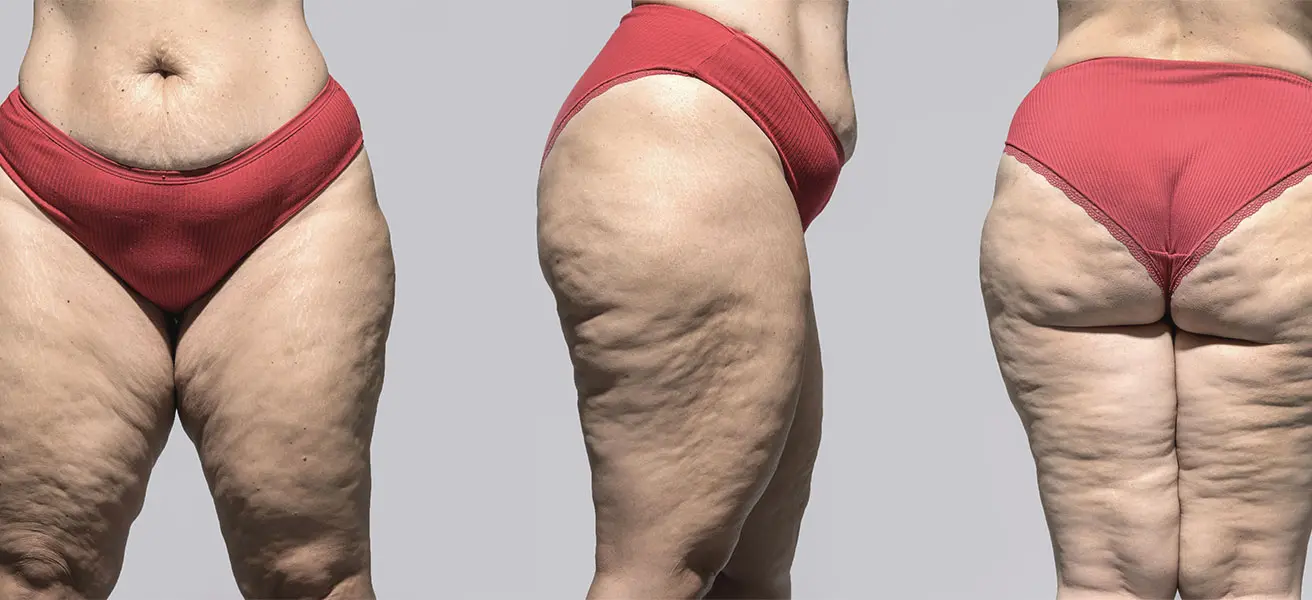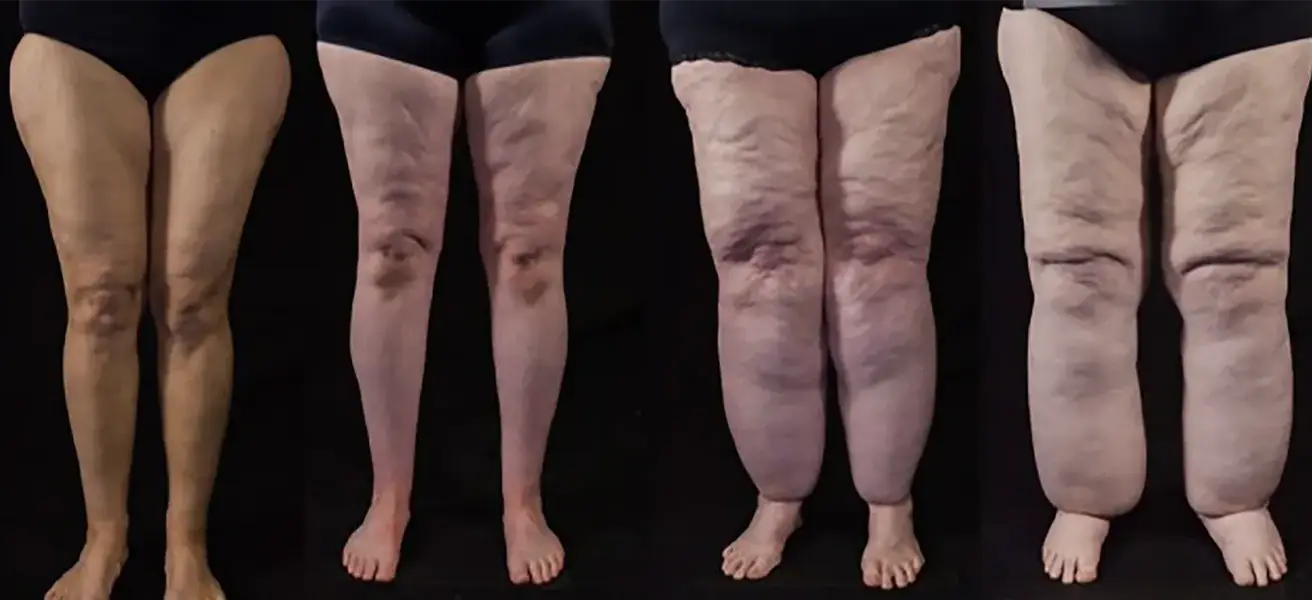Here is a breakdown of the different grades, how gyno affects your self-esteem, and what can be done to get you ready for your NS journey in full confidence.
Table of Contents
Stubborn belly fat is a common physical condition and arguably, one of the most dreaded, as it is hard to eliminate. Having a big belly in women makes one self-conscious, as it is hard to conceal. More crucially, it can lead to many health issues.

What constitutes a "big belly" in Asian Women?
Generally, for women, a reading of 80cm or more (measured around the stomach just above the hip bone level) could indicate a possible high concentration of belly fat.
Aside from the inevitable ageing — typically seen as women get older — the following factors also contribute to belly fat.
Top 10 Contributing Factors of Big belly In Women in Singapore
01. Calorie surplus, plus asian cuisine, is not the healthiest
Our calorie intake should be enough for what we need, but most of the time, we consume more. Weight gain, among other factors, is often associated with consuming more calories than the body needs, as this leads to excess fat.
Generally, Southeast Asian cuisine is considered healthy, as there is a lower incidence of acute obesity and cardiovascular disease than in the West[1]. However, a study revealed that local Asian foods contained higher levels of sodium, saturated fat, and cholesterol than western-style fast foods[2].
02. Women in Singapore loses muscle mass due to lack of exercise
Muscles are denser than fat, so they take up less space in the body. The unavoidable truth is that we lose muscle mass as we age, mainly because many older women do not exercise regularly or incorporate strength training into their fitness routine.
Research shows that women ,especially those between 30 and 49 who are full-time employees and have lower levels of education, get the least and more irregular exercise. Reasons for this include time constraints, a feeling of obligation rather than desire to exercise, and misconceptions about exercise[3].
03. Genetics
Genes play a significant role in our body shape. If there is a history of obesity in the family, the likelihood of a person becoming obese is higher.
It was reported that 30% of Singaporeans are classified as overweight, and more than 10% of Singaporeans are classified as obese. Obesity was highest among adults aged 40 to 49 years at 15% The prevalence of obesity among females rose from 9.3% to 10.2%[4].
Genetic factors contribute to obesity by influencing the function of metabolic pathways and the regulation of appetite centres[5]. This is closely linked to maternal and paternal nutrition and lifestyle factors[6].
04. Imbalanced diet, lack of protein
Indulging in food items high in sugar, trans fat, and excessive alcohol intake are just some less-than-desirable habits that are detrimental and can lead to the accumulation of belly fat.
Insufficient protein intake is a factor in the development of belly fat. Adequate protein can increase metabolism and reduce caloric intake.
05. Sedentary lifestyle
Staying physically active is one of the keys to better health and a slimmer silhouette[5].
A sedentary lifestyle is prevalent among Singaporean women, linked to factors like long working hours and a work-centric culture[7]. This inactivity increases the risk of health problems such as obesity, type 2 diabetes, and cardiovascular disease[8].
06. Cortisol, the stress hormone affecting Singaporeans
Chronic stress elevates the stress hormone cortisol, which can lead to increased belly fat by promoting fat storage in the abdominal area, increasing cravings for high-calorie foods, and slowing metabolism.
Singaporeans experience stress-related cortisol fluctuations due to factors such as long working hours, pressure or demands from bosses, household responsibilities, and parental duties.
A demanding job and role in life means the body is continually under stress. As the stress hormone cortisol sends messages to the brain to store up fuel to fight stress, you may end up eating more. The excess calories are stored as belly fat.
07. Lack of adequate sleep in Singapore
A study was done on 70,000 women over 16 years. The results indicated that those who slept fewer than five hours per night were 32% more likely to gain extra weight. This association persisted even after accounting for other factors, such as diet and exercise[9].
Sleep deprivation has risen to the level of a public health crisis in Singapore. A recent survey of 43 cities and their residents found that Singapore ranked third for sleep deprivation. Only one in four people gets more than seven hours of sleep daily, and only 17 per cent of respondents sleep through the night[10].
08. Menopause And Belly Fat
Studies suggest that menopause is associated with a modest increase in total fatness and an accelerated accumulation of central body fat, exceeding changes commonly attributed to ageing[11].
Menopause occurs a year after a woman's last menstrual cycle. This marks the start of a reduction in estrogen levels, leading to fat storage around the stomach rather than the thighs and hips. The amount of belly fat a woman gains during menopause depends on genetics and the age at which menopause sets in.
09. The Gut Bacteria Factor
Our bodies contain bacteria, lots of them. Some benefit us, while others cause issues. Gut health is not a common thought of afterthought, even for most of us, but it is essential to understand that an imbalance can result in weight gain and excess belly fat.
Gut bacteria contribute to belly fat in women by influencing how the body extracts energy from food, affecting metabolism and fat storage, and promoting inflammation.
Diet plays a vital role in affecting the gut microbiome. Diets low in fibre and high in sugar and fat can cause an imbalance in gut bacteria, leading to weight gain. A high-fibre diet helps promote the growth of good bacteria. Certain bacteria and their byproducts can influence feelings of fullness and the storage of fat in the body[12].
10. Postpartum
Eating for two is not true. In your third trimester, it is recommended that you consume 200 extra calories on top of the 2000 daily calories for women. Excess calories will be reflected in your body, with prominent fat gain in the abdomen, arms, and thighs.
Difference Between Weight Loss And Fat Loss
It is important not to confuse weight loss with fat loss. Those struggling with weight loss often find stubborn fat hard to shed, because to lose weight, you must shed fat.
That being said, some do not wish to reduce the numbers on their weighing scale. They are concerned about localised fat on their outer or inner thighs or stomach. This group usually includes people getting married who want to look their best on their wedding day, as well as those with a postpartum belly.
Weight Loss is about losing weight overall and is usually achieved through dietary and lifestyle changes. Diet pills and adopting some fad Hollywood diet trends will not allow you to lose weight healthily! Beware of the negative and, most importantly, dangerous side effects of shortcut weight loss solutions.
Besides excess calorie intake, other factors that cause weight gain include hormonal imbalance, consuming foods that lead to insulin and leptin resistance, chronic stress, food intolerance, or even lack of sleep!
Dr Ivan Puah, an MOH-accredited lipo doctor who is also the Chairman of the Lipo Peer Review Committee in Singapore, advises,
"Targeted fat loss treatments can enhance body shape without impacting overall weight. We need to understand the patient's concerns to recommend the most suitable treatments. Our plan will depend on whether the patient aims to lose weight or improve body size and shape, along with factors like desired fat loss, downtime availability, physical health, and treatment expectations."
If you have specific problem areas, such as a big belly in women, weight loss alone may not be the right option.






























